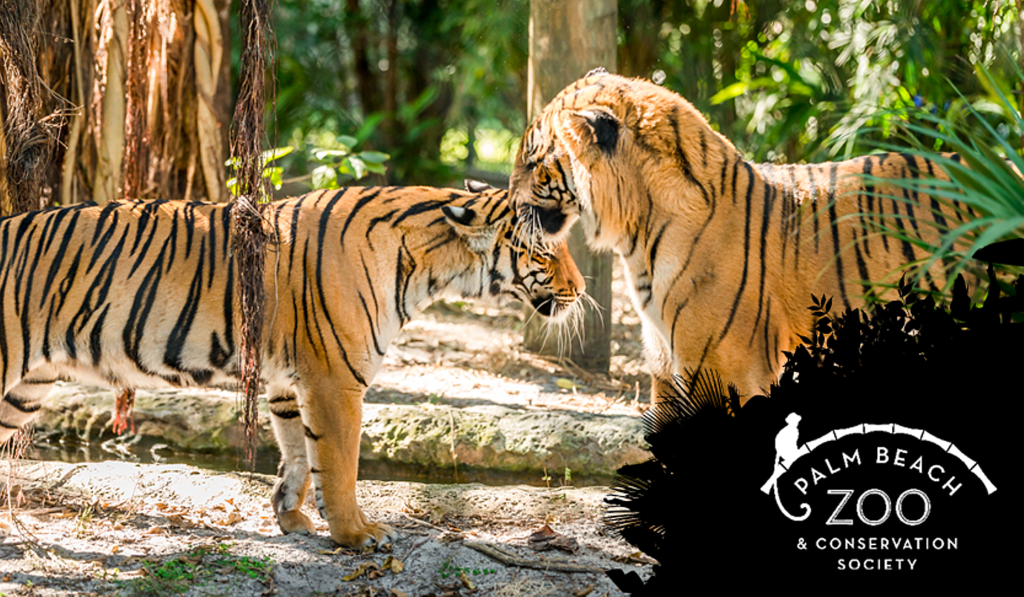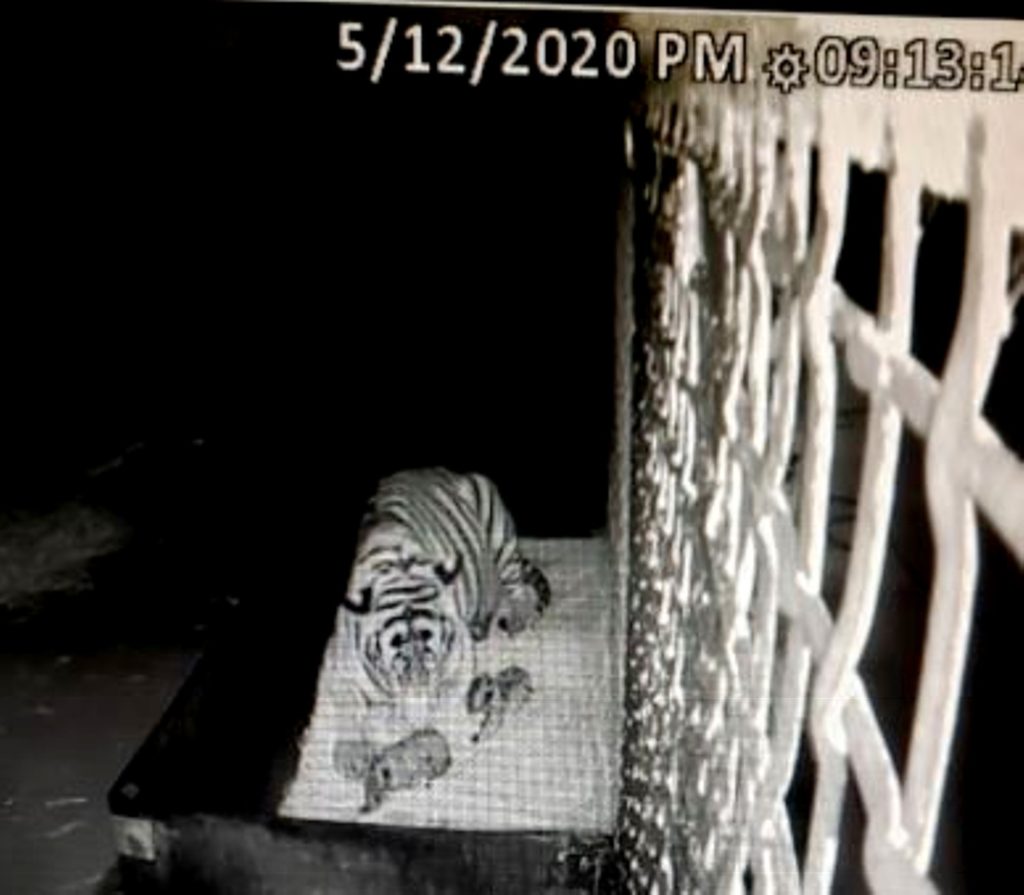
Palm Beach Zoo & Conservation Society has reopened to for visits seven days per week from 9 a.m. – 5 p.m. (last ticket sale is at 4:15 p.m.) and will be operating normally with a few notable exceptions:
- Capacity will be limited and carefully monitored to allow for physical distancing.
- All visitors are encouraged to purchase tickets in advance at palmbeachzoo.org.
- A one-way path will be designated throughout the Zoo in the Florida Wetlands, Tropics of the Americas and The Islands.
- Certain exhibits will be closed or roped off including the carousel, train, observatory, cafe, aviary, butterfly garden and bronze statues.
- Food service is available at the concessions window and kiosks in Fountain Plaza.
- Hand-sanitizer stations will be available throughout the Zoo.
- Animal talks and animal experiences will not take place at this time.
- Strollers and wheelchair rentals are not available and guests are encouraged to bring their own.
- Guests to the Zoo are asked to refrain from visiting if they are in a high-risk category for COVID-19 complications, are not feeling well or have a fever. Guests are also highly encouraged to wear masks, utilize hand-sanitizing stations, and maintain a six-foot distance from other groups.
It’s particularly exciting because in May, Palm Beach Zoo & Conservation Society announced that beloved Malayan tiger Api gave birth to three healthy cubs. Api and her mate Kadar, are part of the Association of Zoo and Aquarium’s (AZA’s) Malayan Tiger Species Survival Plan® (SSP). The SSP® is a cooperative reproduction program that serves as an important backup population for critically endangered Malayan tigers in the wild.
“This is a tremendous milestone for Api, Kadar, Palm Beach Zoo and the Malayan tiger subspecies. It is cause for a global celebration,” said Margo McKnight, president & CEO of Palm Beach Zoo. “Malayan tigers are critically endangered and number fewer than 200 in the wild. Having a secure backup population at AZA institutions like ours may be the only safeguard for the future of these magnificent creatures.”

A critically endangered status means Malayan tigers will go extinct in the near future if illegal hunting and habitat destruction are not curtailed. Tigers at Palm Beach Zoo also have an important role to play as ambassadors for the greater tiger species. McKnight points out, “The tigers inspire the Zoo’s visitors to act on behalf of wildlife.”
Tiger cubs are born blind and they don’t gain sight for the first few weeks. They spend the first month or so in the den with their mother and will not venture far for several months. The Zoo will provide updates, adorable photos and video via facebook and Instagram (@palmbeachzoo) to keep the community connected with the cubs. An announcement will follow on when the cubs will be visible in the Henry & Charlotte Kimelman Tiger River and Tiger Falls Habitats sponsored by Braman Motorcars.
Without daily visitors, Palm Beach Zoo was significantly affected by the loss of admission revenue during the temporary closure. Support of the cubs through donations is welcomed on the Zoo website, www.palmbeachzoo.org/cubs.
For more than 50 years, Palm Beach Zoo & Conservation Society has provided visitors with up-close and personal animal encounters that connect people to wildlife. Palm Beach Zoo guests explore a WILD ecosystem thriving on 23 lush, tropical acres while discovering hundreds of exotic animals. Visitors enjoy interactive animal experiences, nature and water play, and a lakeside cafe. Palm Beach Zoo participates in AZA Species Survival Plan® programs, ensuring healthy animal populations for rare and endangered species. The impact of a visit to Palm Beach Zoo extends beyond the gates, inspiring people to take action and save wildlife in wild places.
For more information, visit www.palmbeachzoo.org.
For more travel features, visit:
goingplacesnearandfar.wordpress.com
www.huffingtonpost.com/author/karen-rubin
travelwritersmagazine.com/TravelFeaturesSyndicate/
goingplacesfarandnear.tumblr.com/
instagram.com/going_places_far_and_near/
‘Like’ us on facebook.com/NewsPhotoFeatures
Twitter: @TravelFeatures